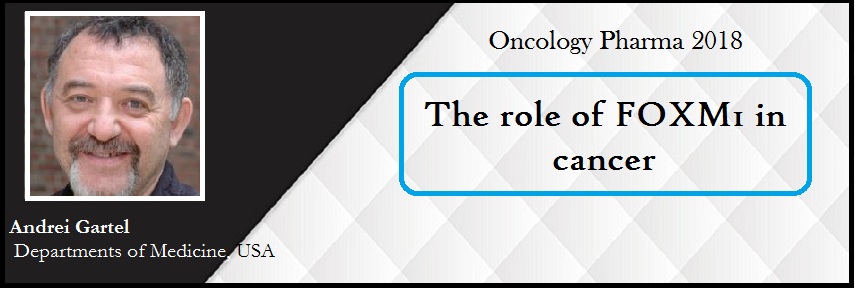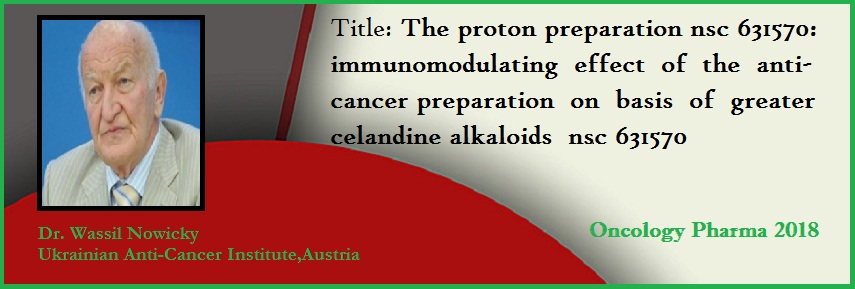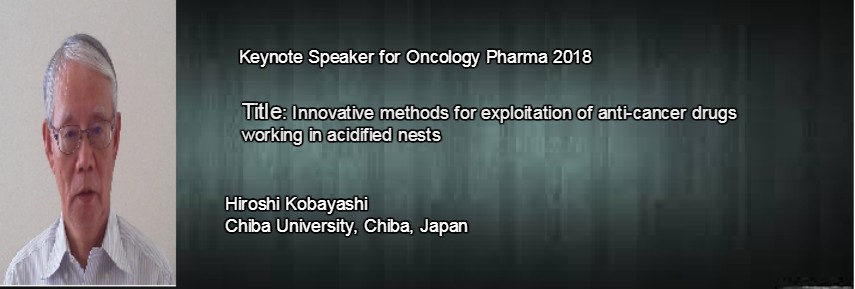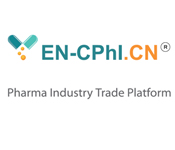Theme: Deciphering The Pharmacological Pathways of Conventional and Alternative Medicines in Cancer Treatment
Oncology Pharma 2018
Conference Series LLC Ltd invites all the participants across the globe to attend the "International Conference on Pharmaceutical Oncology” slated on July 18-19, 2018 Atlanta, USA.
Theme: Deciphering The Pharmacological Pathways of Conventional and Alternative Medicines in Cancer Treatment
Dates: July 18-19, 2018
Venue: Atlanta, USA
Conference Series LLC Ltd is the leading international conference organizer and open access publisher which hosts numerous cancer conferences like, breast cancer conference, liver cancer conference, lung cancer meetings, skin cancer conference, and oncology conferences where knowledge transfer takes place through round table discussions, poster presentations, workshops, debates, symposia and exhibitions and which helps get possibilities for treating the diseases with new era, technology and research.
Why to attend?
This unique international conference provides a platform for researchers and decision makers in Oncology research to present their latest findings and learn about all the important developments in Cancer Research. Many scientists and world's renowned experts will participate in the conference. Throughout the course of the two days conference, you will have the opportunity to meet eminent experts, grab the unique ideas, both network and hear leaders from the international academic and corporate cancer research communities.
Target Audiences:
- Oncologists
- Cancer Researchers
- Cancer research Faculty
- Hematologists
- Medical Colleges
- Research Scholars
- Students
- Nursing Faculty
- Pathologists
- Radiologists
- Haematology Associations & Societies
- Academicians
- Business Entrepreneurs
- Software Developing Companies
- Medical Devices Companies
- Biomedical Companies
- Biotechnology Companies
- Directors/Managers & Business Intelligence Experts of Pharma Industries
In addition to producing our own oncology meetings, cancer conferences, cancer meetings, oncology conferences, we cooperate with national oncology associations and institutes, cancer leagues and other local groups to ensure the highest academic standards in their programs and to stimulate continuing medical oncology education and training.
Track 1: Types of Cancers
In 2016, 1,685,210 new cases of cancer were diagnosed in the United States and 595,690 people died from the disease. Presently, based on statistical analysis of data for the last 4 years, the number of new cases of cancer (cancer incidence) is 454.8 per 100,000 men and women per year and cancer deaths (cancer mortality) is 171.2 per 100,000 men and women per year. The number of people living beyond a cancer diagnosis reached nearly 14.5 million in 2014 and is expected to rise to almost 19 million by 2024. National expenditures for cancer care in the United States totalled nearly $139 billion in 2014 and will reach $156 billion in 2020.
Common types of cancers include:
Breast cancer | Lung and bronchus cancer | Prostate cancer | Colon and rectum cancer | Bladder cancer | Melanoma of the skin | Non-Hodgkin lymphoma | Thyroid cancer | Kidney and renal pelvis cancer | Leukaemia | Endometrial cancer | Pancreatic cancer
Track 2: Cancer Prophylaxis
Today many types of cancers have a preventive measure. It can be in various ways ranging from lifestyle modification to vaccination. However, being a global cause, the American cancer Society has laid down an abbreviation as check list for screening cancer incidence
- C: Change in bowel or bladder habits
- A: A sore that does not heal
- U: Unusual bleeding or discharge
- T: Thickening or lump in the breast or elsewhere
- I: Indigestion or difficulty in swallowing
- O: Obvious change in a wart or mole
- N: Nagging cough or hoarseness
Track 3: Cancer Diagnosis
Most experienced symptoms do not suggest signs of cancer. They may also be caused by benign tumours or other problems. If symptoms persist for a couple of weeks, it is important to see a doctor to diagnose the disease or disorder and treat it as early as possible. Usually, early cancer does not cause pain. If there exists any symptoms and it is advisable that one waits to feel the pain before seeing a doctor.
|
Cancer Diagnostics |
|
|
|
|
|
|
|
|
|
|
|
|
|
|
|
|
|
|
|
|
|
|
|
|
|
|
|
|
|
|
|
|
|
|
|
|
|
|
|
|
|
|
|
|
|
|
|
|
|
|
|
|
|
|
|
|
Track 4: Cancer Pathogenesis and Etiology
At present, in the modern oncology the damage of the genetic apparatus of the cell is the primary cause of cancer, and the pathogenesis of cancer is seen as a process of transformation of a normal cell into a tumour cell, as evidenced by deep fundamental research of the pathogenesis of cancer, which is held exclusively at the cellular, molecular and genetic levels of the organism. It is accepted to distinguish three etiological causes of cancer and respectively, three types of carcinogenesis: chemical carcinogenesis (chemical carcinogens—benzpyrene, asbestos and over 800 chemicals) physical carcinogenesis (physical carcinogens—ionizing radiation, ultraviolet radiation, etc.), biological carcinogenesis (biological carcinogens—viruses, bacteria, fungi). Unfortunately, cancer process is still unmanageable due to the lack of systemic representations about the true pathogenesis of cancer. Paradoxically, but unabated scientific research continues to withdraw beyond the scope of understanding of the nature of cancer, deepening the gap between science and clinical practice.
Track 5: Cancer Pathophysiologies
Cancer is fundamentally a disease of tissue growth regulation. In order for a normal cell to transform into a cancer cell, the genes that regulate cell growth and differentiation must be altered. The recent surge in genome sequence data and functional genomics research has ushered in the discovery of aberrations in a third category: gain-of-novel-function mutation (neomorph). These neomorphic mutations, which can be found in both tumour suppressor genes and oncogenes, produce proteins with entirely different functions from their respective wild-type (WT) proteins and the other morphs.
Head and neck cancer (HNC) pipeline has 340 products active across all stages of development. The global market for cancer vaccines was about $4.5 billion in 2013. This market reached about $4.0 billion in 2014 and is expected to reach $4.3 billion in 2019, registering a compound annual growth rate (CAGR) of 1.3% for the period 2014-2019.
Track 6: Cancer Therapeutic Modalities
Often, modalities are combined to create a treatment program that is appropriate for the patient and is based on patient and tumour characteristics as well as patient preferences. The WHO list of essential medicines was updated in 2015 to include 30 cytotoxic and adjuvant medicines (anti-cancer medicines) that are part of proven clinically effective treatment regimens. Targeted Therapy is presently the most sought treatment modality for cancer which can work by triggering a patient’s own immune system to destroy cancer cells (immunotherapy) or may interfere with signals or proteins that prevent tumour cells from dividing and in case of Hormone therapy- they may be specifically used on hormones that have receptors to hormones.
Track 7: Pre-clinical models in Oncology
Making the choice of apt preclinical model considering the similarity to human biology and disease genotypic and phenotypic characters that it carries, marks a considerable potential to ensure higher predictability of preclinical research. The designing and interpretation of trials on human volunteers is a major challenge in the development of novel anticancer agents. Key study design elements like schedule, doses, dose administration, escalation strategy, targeted patient population, etc. rely heavily on preclinical data. This scenario requires cautious decisions on the predictability of preclinical tumour models as well as the method of analysis and translation of the results of preclinical studies. It is surely a challenging task to model for preclinical assessment of cancer immunotherapy, the most actively developing area in oncology. The need for stimulating the response of the immune system adds to the complexity of preclinical models and the applications.
Track 8: Factors Affecting Clinical Outcomes
Measuring change using clinical outcome measures is one way to monitor the clinical impact of the services Hospitals / Trusts and Private practices provide for their service users. With the move towards Evidence Based Practice (EBP) in the health sciences, objective measures of outcome are important to provide credible and reliable justification for treatment. In the UK, National Cancer Registration and Analysis Service (NCRAS) works to drive improvements in standards of cancer care and clinical outcomes by improving and using the information collected about cancer patients for analysis, publication and research. In USA, The National Cancer Registrars Association collects, manages and analyses data relating to persons diagnosed with malignancy of tumour-cancer.
Track 9: Anti-Cancer Drugs
The year 2016 witnessed recordable number of US Food and Drug Administration (FDA) approvals of new pharmaceuticals, including new molecular entities (NMEs) and new Biologic License Applications (BLAs). The number was as high as 45 NMEs and BLAs in all disease states compared with 41 approved in 2014 and only 27 in 2013. Out of these 45 NMEs and BLAs entering the market last year, 16 were novel therapies for cancer. According to the Pharmaceutical Research and Manufacturers of America (PhRMA), as many as 836 drugs and vaccines are at various stages of development for cancer; these are either in clinical trials or are awaiting review by the FDA.
Of the 836 drugs and vaccines for cancer
- 123 are for lung cancer (still the leading cause of cancer-related death in the United States)
- 106 for leukaemia
- 92 for lymphoma (including non-Hodgkin lymphoma)
- 82 for breast cancer (the leading cancer in US women)
- 58 for brain tutors
- 53 for skin cancer (including melanoma)
Track 10: Chemotherapeutic Agents
Over the past decade, there has been a paradigm shift in the treatment of cancer, driven by advances in personalized medicine and immuno-oncology. According to the WHO, cancer was the second leading cause of death in 2015, responsible for 8.8 million deaths globally. From 2011-2015, 42 new cancer medicines were launched globally, but the availability of newly launched agents differs substantially by geography, with the highest number of novel agents being available in the United States and Germany. The pipeline of oncology drugs in clinical development has expanded by 45% over the past ten years. Oncology research and development activity remains concentrated on targeted therapies, which made up 90% of the late phase pipeline in 2016. Focus is being placed on targeted therapies that use genetic marker tests to indicate a greater likelihood of tumour response, or amplify the patient’s own immune response to target the cancer. The late phase oncology pipeline includes 278 biologic therapies, including 15 gene therapies, 133 new monoclonal antibodies (mAbs), and 14 biosimilars of existing mAbs. The late phase pipeline also includes 82 potential vaccines for a wide variety of tumour types. Immunotherapies are one of the fastest growing areas within oncology R&D, and will undoubtedly make up a larger portion of the pipeline in 2021.
For conference attendance and participation only Business Visa should be applied. Contact your nearest travel agent/visa information center/US Embassy for the correct application form.
All visas for visiting US shall be processed by respective authorities only upon submission of proper documents through proper channel.
In case of non-furnishing of documents, non-adherence to guidelines visas shall be cancelled by respective authorities.
The minimum supportive documents that might be required while applying for US visa include:
Letter of invitation,
Abstract acceptance letter (if speaker),
Registration payment receipt,
Accommodation confirmation letter issued under conference letter head.
For letter of invitation and accommodation confirmation, payment of registration fees and accommodation charges is a pre-requisite.
Mandate documents required from conference secretariat should be obtained only through Alina Samson or Will Thomas.
For more details please contact
Alina Samson
Program Manager
Oncology Pharma 2018
E: pharmaoncology@conferencesamerica.org
T: 44-8000148923
pharmaoncology@conferencesamerica.org
To share your views and research, please click here to register for the Conference.
To Collaborate Scientific Professionals around the World
| Conference Date | July 18-19, 2018 | ||
| Sponsors & Exhibitors |
|
||
| Speaker Opportunity Closed | Day 1 | Day 2 | |
| Poster Opportunity Closed | Click Here to View | ||
Useful Links
Special Issues
All accepted abstracts will be published in respective Our International Journals.
- Journal of Clinical & Experimental Oncology
- Journal of Clinical & Experimental Oncology
- Journal of Medical Toxicology Research
Abstracts will be provided with Digital Object Identifier by






